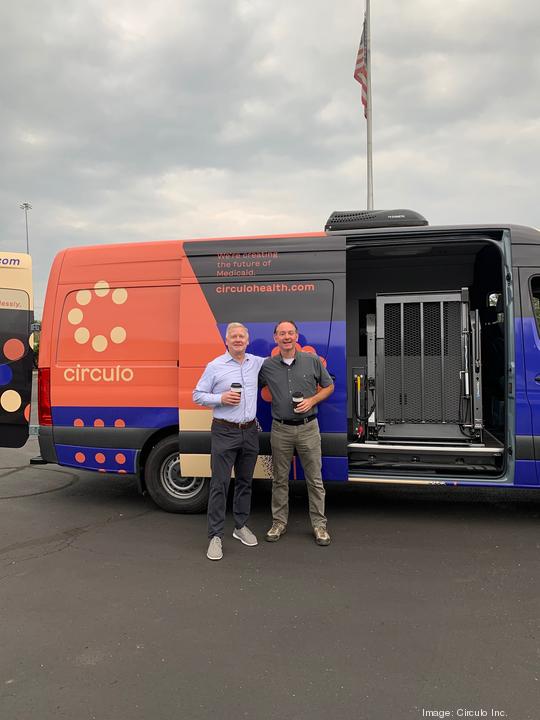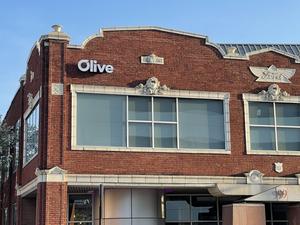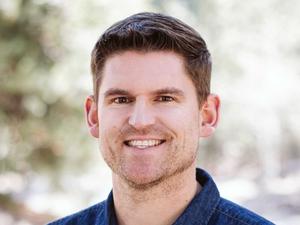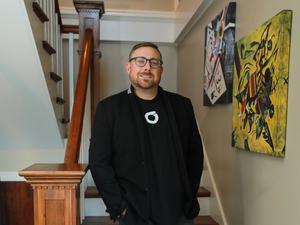
Although its still planning to hire 1,000 caregivers statewide this year, Circulo Health has cut about 20% of its staff as the startup drops its original business model to create a Medicaid managed care plan.
Instead, Circulo will focus solely on in-home and community-based care for individuals with intellectual and developmental disabilities, President Jeff Grahling said in a LinkedIn post announcing the restructuring last week.
"This is a truly painful announcement for us," Grahling said in the post. "This difficult decision stems from market trends that led us to rethink our original focus on creating a new kind of Medicaid insurance company.
"Many of the employees who are leaving us were hired to support that purpose, which we are no longer pursuing. With renewed energy and commitment to a singular focus, Circulo Health's mission is to improve the health and independence of people with I/DD, providing for a broad range of their social, behavioral and physical health needs."
So far Circulo has hired more than 200 of the hoped-for 1,000 providers, Grahling said.
The company declined to enumerate the cuts or elaborate on Grahling's post, but a spokesman updated the percentage he had shared and said that the direct care providers are not impacted.
Circulo has about 155 employees with LinkedIn profiles as of Wednesday. All but one have administrative titles such as in engineering, marketing and recruiting, which were the types of roles affected.
Employees who publicly posted about losing their jobs were largely in engineering or insurance roles. Many expressed gratitude, and some already have posted about new jobs – one this week was named chief product officer at a healthcare company.
"For me, this was deeply personal as I helped recruit and onboard so many of the team members who were directly impacted," COO Mike Renn said in a LinkedIn post. "As tough as scaling the team seemed to be over the past 1.5 years, it pales in comparison to what we all just experienced.
"I hope all of us learned from this difficult experience and do not see it again in our respective careers."
A public health program manager posted that she had taken a "big risk" to leave the nonprofit world for the tech startup two months ago, and was among those losing their jobs.
"While I’d be lying if I said it didn’t sting a bit, I’m choosing to look at this as an opportunity," she said. "I learned a lot ... and I had the chance to work with some very intelligent, caring, and helpful people."
Circulo Inc. debuted in February 2021 with $50 million in venture capital. It's among of handful of sibling and spinoff companies using Olive's AI and automation technology for specific healthcare administrative challenges – Sean Lane is founder and CEO of both.
Separately this month, Olive instituted a hiring freeze. Tech companies nationwide have been slashing staffs in response to inflation and pullback in VC investing.
As recently as May, Circulo was still pursuing the Medicaid plan. After being licensed as an insurer last year, it was the only respondent to a "request for information" from the Ohio Department of Medicaid asking for vendors to describe how they would implement an AI-powered cost savings pilot project created in the state budget, Columbus Business First found via records request. The next step would have been a formal RFP.
The budget provision, not requested by the agency, appeared to be uniquely tailored to fit Circulo's description, although the company said it was not involved in drafting the legislation.
Circulo's new business model
Circulo is now emphasizing solely the home and community services business, integrating primary care for those clients, Grahling said. Medicaid covers that population, but under a different state agency – the Ohio Department of Developmental Disabilities.
The company's data analytics, administrative automation and wrap-around services are meant to lower costs and improve health for those with disabilities, said Tom McMahon, vice president for I/DD programs, in June 1 interview, weeks before the job cuts.
For example, in digitizing care plans that can run 50 pages, it can provide clearer direction for caregivers and note patterns that could prevent a hospitalization or psychiatric stay, he said. For example, the company sent its van to the home of a patient who did not want to visit a doctor, so she got a needed prescription change via telehealth.
Last summer, Circulo acquired a five-county I/DD provider and has since expanded to more than a dozen more counties, aiming for all 88. Services including residential and respite care, plus a van to deliver home-based care and telehealth.
In October, Circulo acquired Huddle, a startup outside Albany, New York, seeking to reform primary care to promote wellness, reported sister website Albany Inno.
"This population across the board has worse health outcomes than the average," McMahon said. "There's a lot of interventions we can be part of."
The biggest industry problem it's trying to solve is turnover, on average 100%. Circulo pays $15 an hour minimum, compared with an average of about $12.50, plus benefits and a retention bonus of $4,000 if a caregiver stays one full year.
Even with that, it still has 80% turnover, McMahon said.
"We recruit 30 people in a week; they don't all show up," he said. "Half drop out by the end of the first week."
Medicaid just covers those personnel costs, he said.
A people-heavy model isn't exactly what most venture-backed insuretechs strive for.
But McMahon said the technology backbone can create efficiencies that lead to less staffing, lower medical costs and more profit. Also, the company hopes to demonstrate results to states that lead to shared savings programs.
"The Medicaid program is far bigger than people think it is," he said. "We will have technologies that we've developed that help us understand needs and assess risk."







